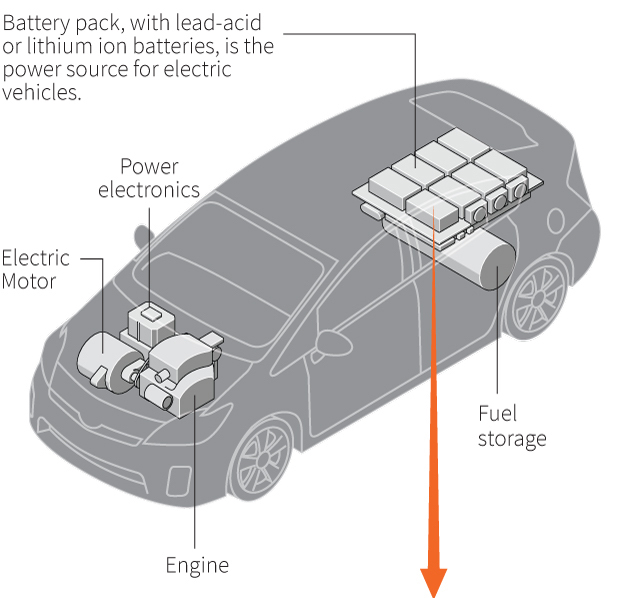Officials in Beijing have brought China’s top battery and carmakers together in a bid to secure a greater stronghold on the production of electric and new-energy vehicles.
Officials last month formed the China All-Solid-State Battery Collaborative Innovation Platform (CASIP) with the aim of overtaking Japan’s strong record in the creation of solid-state batteries by the end of the decade.
The consortium includes six of the top 10 auto battery makers, such as CATL (Contemporary Amperex Technology Co Ltd), BYD’s FinDreams Battery, CALB, Eve Energy and Lotion High-tech, plus state-owned and private carmakers like BYD, according to a report by Nikkei.
ALSO SEE: US Utility to Drop Storage Batteries from Chinese Supplier CATL
The Chinese, who are well aware that new battery technology could overturn their strong start in the launch of electric vehicles, plan to step up research and development of next-generation batteries.
They also want to develop a strong supply line for carmakers, because they (and many others) believe that EVs or new-energy vehicles will make up more than half of car sales by next year or 2026.
There is also the likelihood that artificial intelligence will speed up the development of better car batteries.

Toyota also focused on quick-charging, long range batteries
The big question is whether China’s researchers can surpass Toyota, which reportedly has more than 1,300 patents for solid-state batteries, while Chinese battery companies have less than a hundred.
Toyota Motor executive told an investment summit in India last month that the car giant will launch EVs with solid-state batteries in a couple of years that will charge faster and last longer, according to a report by Reuters.
That followed an announcement last year that Toyota and oil refiner Idemitsu Kosan would develop and mass produce all-solid-state batteries, which they aim to commercialize in 2027 and 2028 for full-scale mass production.
Vikram Gulati, the head in India of Toyota Kirloskar Motor, said Toyota EVs would be rolling out with solid-state batteries in a couple of years.
Speaking at the Vibrant Gujarat Global Summit, he said these cars “will be a vehicle which will be charging in 10 minutes, giving a range of 1,200 kms (750 miles) and life expectancy will be very good.”
At the same event, Japan’s Suzuki Motor said its Indian subsidiary and Toyota partner Maruti Suzuki would export the group’s first battery EV to Japan and Europe – marking the first time for Maruti to export to its parent company’s home country.
Electric models made up around 2% of India’s car sales last year, but the government is targeting 30% by 2030 and India’s road transport minister said at the summit he sees annual EV sales in India reaching 10 million vehicles by 2030.
On Toyota’s plans for solid-state batteries in India, Gulati said the carmaker had various sustainable technology options that would differ based on the country, market and customer preferences.
ALSO SEE:
India’s JSW Planning $4.8 Billion EV, Battery Projects in Odisha
China Vows to Help EV Makers Expand Overseas, Fight Sanctions
Europe Assessing Tariffs on Chinese EVs Amid Subsidy Concerns
Carmakers Focus on Cost-Cutting to Rival Cheap Chinese EVs
Chinese EV ‘Invasion’ Forces Western Rivals to Slash Costs
China EV-Makers Start Steady in Europe Amid Cost, Trust Issues
China Dominates Clean Energy, as Well as EV Batteries – FP
US, Europe Chase Cheaper EV Battery to Curb China Dominance



